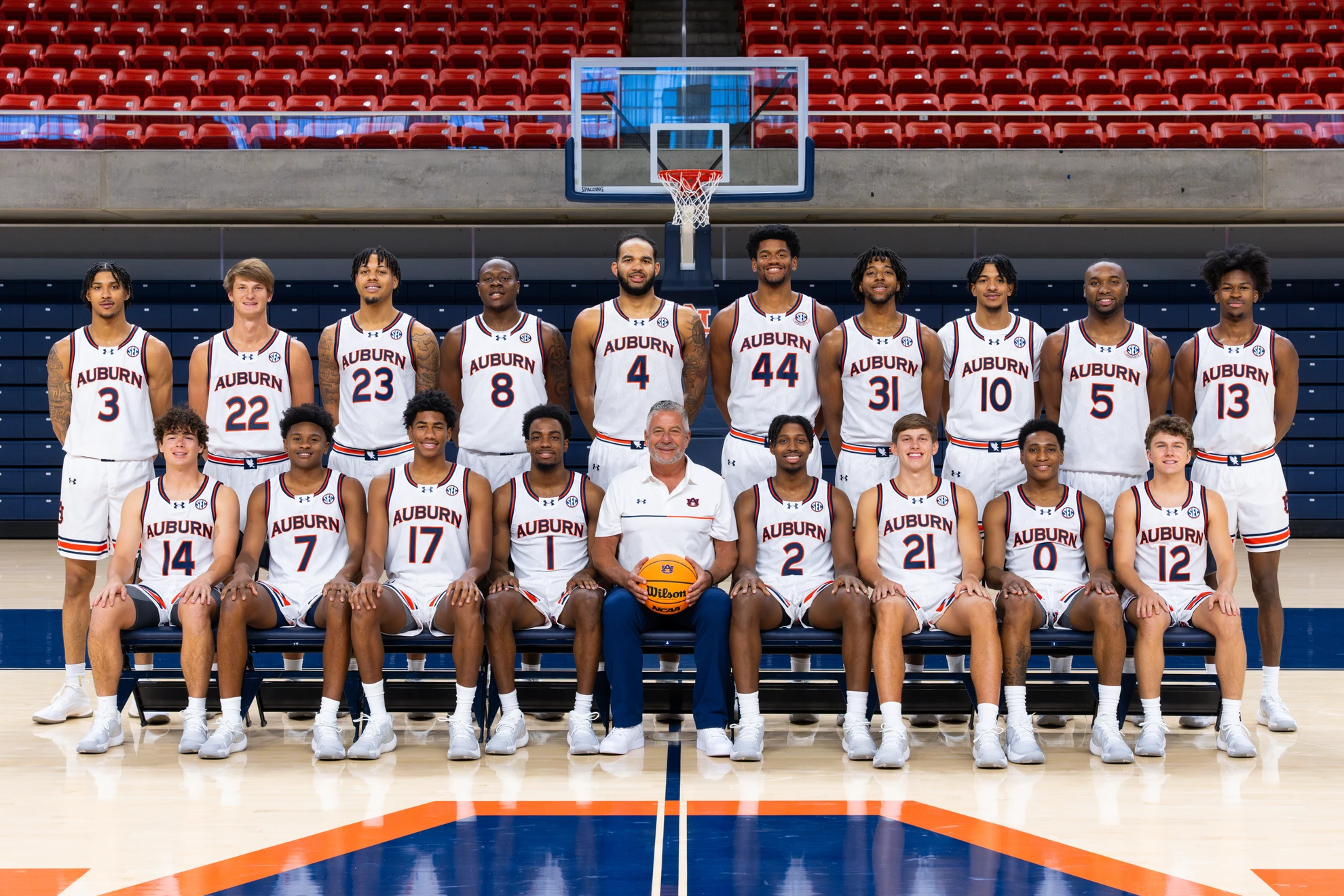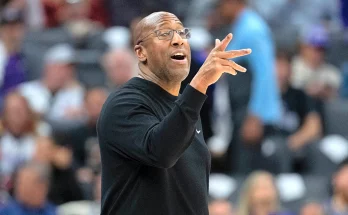The Auburn Tigers and head coach Hugh Freeze suffered a significant setback in their recruiting efforts this week as two highly touted prospects, wide receiver Devin Carter and four-star tight end Xavier Tiller, committed to the Florida State Seminoles. The loss of these two elite talents is a blow to Auburn’s offensive future, especially as Freeze attempts to rebuild the program into an SEC contender. Meanwhile, Florida State continues to strengthen its roster under Mike Norvell, proving once again that the Seminoles are a force to be reckoned with in the recruiting arena.
For Auburn, missing out on Carter and Tiller is more than just a simple recruiting loss—it’s a missed opportunity to add dynamic playmakers to an offense that has struggled with consistency in recent years. Devin Carter, a speedy and physical wideout, possesses the kind of explosiveness that could have immediately elevated Auburn’s passing attack. His ability to stretch the field and make contested catches would have provided a reliable target for Auburn’s quarterbacks, whether it be Payton Thorne or a future signal-caller. Instead, Carter will now be making big plays in Tallahassee, further bolstering an already loaded Florida State receiving corps that includes names like Hykeem Williams and Ja’Khi Douglas.
Xavier Tiller’s decision to choose Florida State over Auburn is equally disappointing for the Tigers. As one of the top tight ends in the 2025 class, Tiller has the size, athleticism, and ball skills to develop into a game-changer at the collegiate level. Tight ends have become increasingly vital in modern offenses, serving as both blockers and mismatch creators in the passing game. For Hugh Freeze, who has historically utilized tight ends effectively in his offensive schemes, losing Tiller means having to search elsewhere for a player who can fill that role at a high level. The Seminoles, on the other hand, add another weapon to an offense that is already stacked with talent, further solidifying their status as a potential playoff contender in the coming seasons.
The ramifications of these commitments extend beyond just the players themselves. Recruiting is as much about momentum as it is about talent acquisition, and losing high-profile battles to a program like Florida State could have a ripple effect on Auburn’s future efforts. The Tigers have been working diligently to reestablish themselves as a premier destination for elite recruits, but setbacks like this make that climb even steeper. In the fiercely competitive SEC, where Alabama, Georgia, and LSU consistently pull in top-tier classes, Auburn cannot afford to let difference-makers slip away—especially to out-of-conference rivals like Florida State.
For Hugh Freeze, this is a moment that tests his ability to pivot and regroup. Freeze, known for his offensive ingenuity and recruiting prowess during his time at Ole Miss, was expected to bring a renewed energy to Auburn’s recruiting efforts. While he has secured some notable commitments since taking over, losing players of Carter and Tiller’s caliber highlights the challenges he faces in going head-to-head with other powerhouse programs. The pressure to deliver on the recruiting trail will only intensify as Auburn fans grow impatient for a return to national relevance.
On the flip side, Florida State’s success in landing both Carter and Tiller underscores the program’s resurgence under Mike Norvell. The Seminoles have been methodically rebuilding their roster with a mix of high school stars and impactful transfers, and their 2025 recruiting class is shaping up to be one of the best in the nation. Norvell’s ability to sell his vision—a blend of explosive offense, player development, and a clear path to championship contention—has resonated with recruits. The addition of Carter and Tiller only strengthens Florida State’s case as a program on the rise, capable of competing with the likes of Clemson and Miami in the ACC while also challenging for national accolades.
For Auburn, the path forward involves reassessing their recruiting strategy and identifying new targets who can fill the voids left by Carter and Tiller. The transfer portal will likely play a key role, as Freeze has shown a willingness to supplement his roster with experienced players from other programs. However, relying too heavily on transfers is not a sustainable long-term solution. Building through high school recruiting remains the foundation of any successful program, and Auburn must find a way to close the deal on elite prospects moving forward.
The Tigers still have plenty of time to recover in the 2025 cycle, but the loss of these two standouts serves as a stark reminder of how competitive the recruiting landscape has become. Programs like Florida State, Oregon, and Texas are investing heavily in recruiting infrastructure, making it harder for traditional powers like Auburn to maintain their foothold. If Freeze and his staff want to avoid similar disappointments in the future, they will need to find ways to differentiate their pitch, whether through NIL opportunities, early playing time guarantees, or a clear developmental track record.
In the grand scheme of things, one recruiting battle does not make or break a program, but the accumulation of losses can. Auburn cannot afford to let Florida State—or any other program—consistently outmaneuver them for top talent. The Tigers must regroup, refocus, and come back stronger in their pursuit of the next wave of recruits.
As for Florida State, the Seminoles are riding high. Securing commitments from Devin Carter and Xavier Tiller is a testament to the program’s upward trajectory and its ability to attract elite talent. If Norvell can continue stacking recruiting wins like this, Florida State will soon find itself back in the national championship conversation—a place it hasn’t been since the Jameis Winston era.
For Auburn, the message is clear: the margin for error is thin, and the competition is relentless. Hugh Freeze and his staff must find a way to turn the tide, or risk falling further behind in the race for college football’s next generation of stars.


